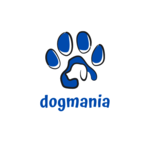Grain-Free Dog Food: A Vet's Perspective on the Controversy
The pet food industry has seen a surge in popularity of grain-free dog food in recent years. However, this trend has not been without controversy. This article delves into the grain-free dog food debate from a veterinarian's perspective, exploring the potential benefits and risks to help you make an informed decision for your furry friend.
Understanding Grain-Free Dog Food
Grain-free dog food is formulated without common grains like wheat, corn, rice, and barley. Instead, it often includes alternative carbohydrates such as potatoes, peas, and lentils. Proponents argue that this diet is closer to what dogs' wild ancestors ate and may benefit dogs with grain allergies or sensitivities.
The Appeal of Grain-Free Dog Food
1. Allergy Relief: One of the main reasons pet owners switch to grain-free food is to alleviate food allergies. Dogs with sensitivities to grains may experience improved skin and coat health, reduced itching, and better digestion on a grain-free diet.
2. Digestive Health: Some owners believe that grain-free diets are easier for dogs to digest, leading to less gastrointestinal distress and firmer stools.
3. High-Quality Ingredients: Grain-free dog foods often market themselves as using higher quality, natural ingredients, which can appeal to health-conscious pet owners.
The Controversy Surrounding Grain-Free Diets
2. DCM Concerns: Some studies suggest a correlation between grain-free diets and DCM. While the exact cause is still under investigation, it has raised concerns among veterinarians and pet owners alike.
3. Marketing Hype: Critics argue that the grain-free trend is more about marketing than actual health benefits, leading owners to spend more on these products without solid evidence of their superiority.
A Vet’s Perspective
Veterinarians emphasize the importance of a balanced diet over the absence of grains. A well-formulated dog food, whether it contains grains or not, should provide all necessary nutrients. Pet owners should look for foods that meet the Association of American Feed Control Officials (AAFCO) standards.
Every dog is unique, and dietary needs can vary based on age, breed, activity level, and health conditions. Vets recommend tailoring the diet to the individual dog rather than following trends. Regular check-ups and consultations with your veterinarian are crucial to ensure your dog’s diet meets their specific needs.
Making an Informed Decision
Not all grain-free dog foods are created equal. Research reputable brands known for high-quality ingredients and transparent sourcing. Look for brands that have veterinary nutritionists on staff and adhere to rigorous testing standards.
After transitioning to a grain-free diet, closely monitor your dog's health. Keep an eye on their energy levels, coat quality, digestion, and overall well-being. Regular veterinary check-ups can help detect any potential issues early.
If your dog doesn’t have a grain allergy but you’re concerned about the potential risks of grain-free diets, consider alternative high-quality foods. Many brands offer limited-ingredient diets that can reduce the risk of allergies without eliminating grains entirely.



leave me your thoughts here